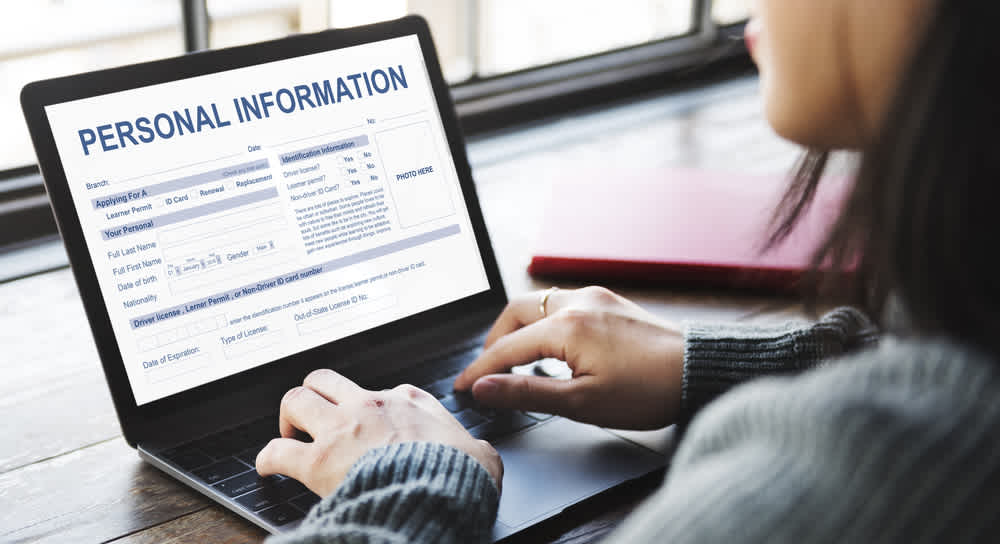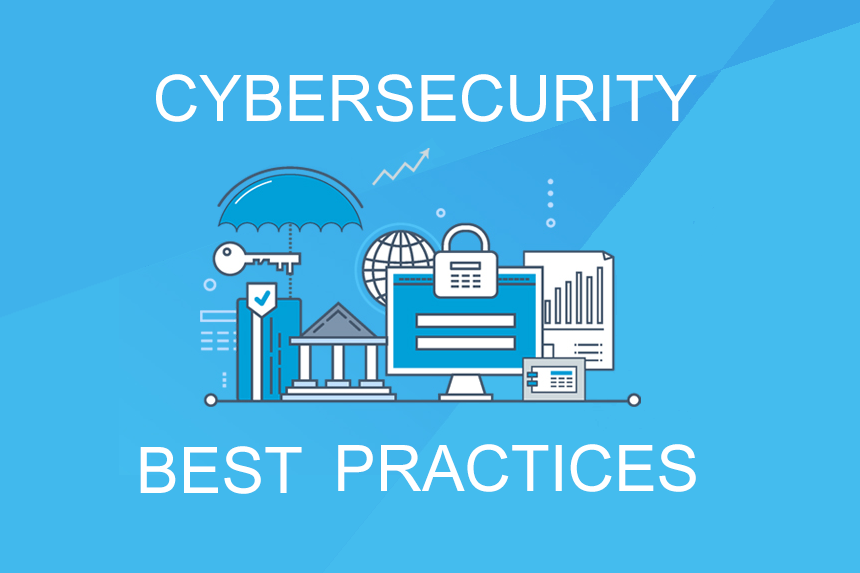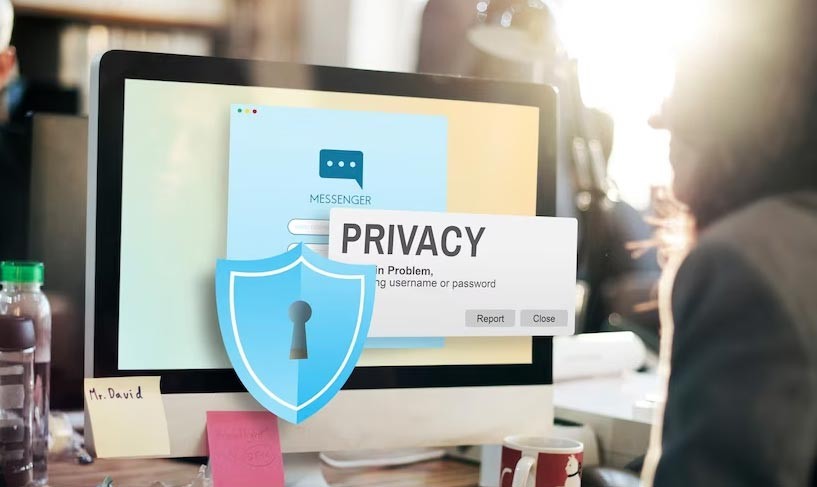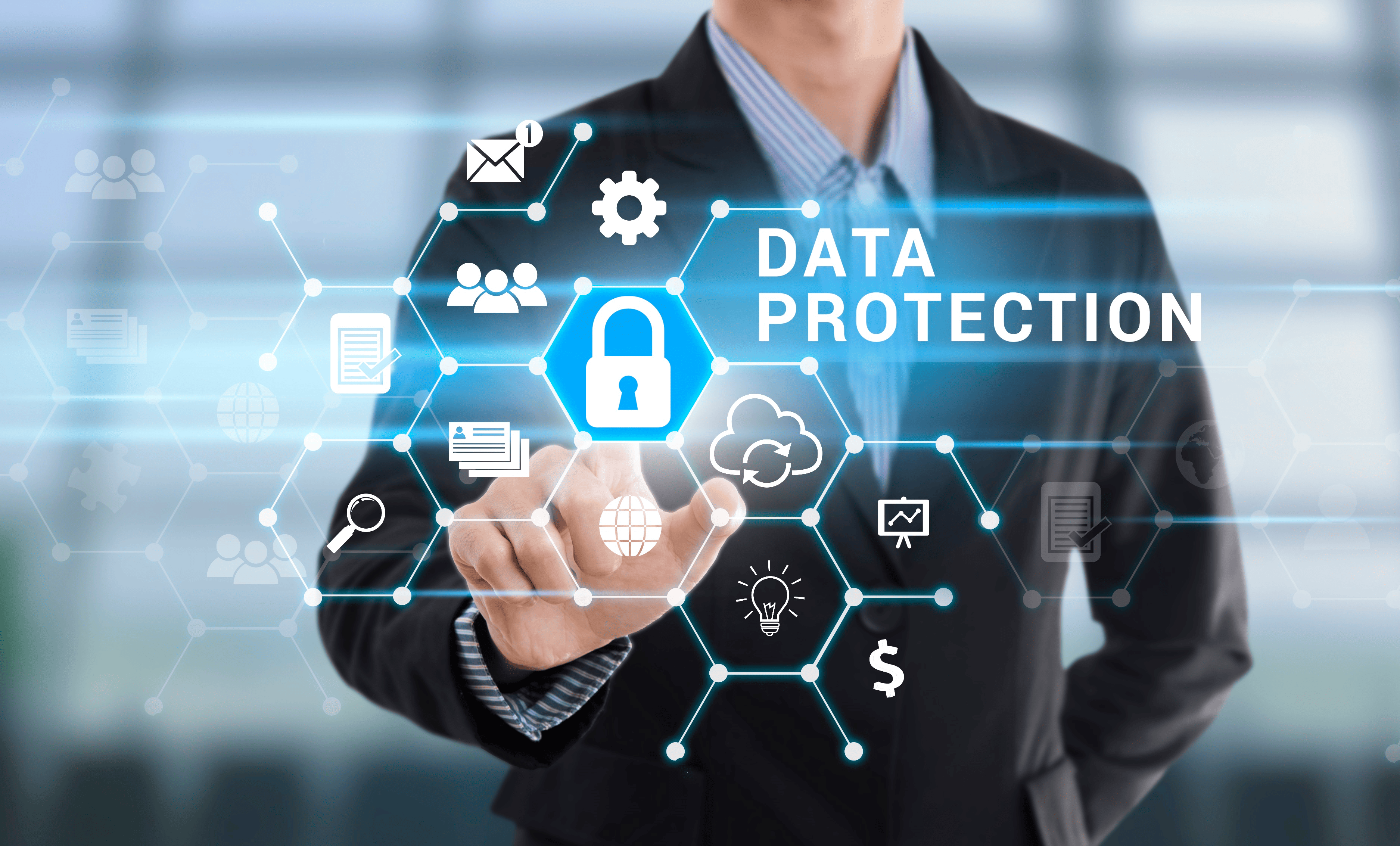10 Practical Tips to Protect Your Online Data
With everything going digital it's more important than ever to keep our online data safe. It's a lot like making sure our homes are secure; we need to protect our personal details on the internet too. When the wrong people get their hands on our information it can lead to trouble such as identity theft or losing money. So learning how to keep our online selves secure is crucial.
In this article we'll share ten straightforward tips to help you keep your online information under lock and key. We'll cover the basics like how to make solid passwords and advise you on how to browse the internet safely. These tips are for everyone whether you use the internet for fun work or to stay in touch with friends and family.
The experts at Trusted10.io know how important it is to protect your personal information while you're using the internet. We have compiled these suggestions to make your online experience safer. By adhering to these guidelines you can enhance the safety of your online activities and prevent the misuse of your personal information.
Tip 1: Use Strong Unique Passwords
Think of your online accounts like a treasure chest. The password is the key. You wouldn't want a key that pirates could copy. Here's how to make a super strong key for your treasure:
- Mix it Up: Make your password a jumble of big and small letters numbers and unique doodads like ! $ or @. Skip easy stuff like your birthday or simple words like "password"—that's like using a plastic spoon for a lock!
- Go Long: The longer your password the more challenging it is for sneaky folks to guess. Aim for at least 12 characters. It's like having a more extended twistier road to your treasure that's harder for the bad guys to follow.
- One of a Kind: Use a different key for each treasure chest (account). If a pirate gets hold of one key you want them to open only some of your chests!
- No Plain Words: Avoid words straight out of a dictionary or phrases that are easy to guess. Instead string together a few random words or an inside joke that only makes sense to you.
- Switch it Up: Change your passwords now and then like how you might change locks on your doors from time to time for extra safety.
And here's a secret tool: password managers. These are like having a master keyring that remembers all your different keys for you but in a super secure way. They create tough-to-crack passwords for you keep them safe and even fill them in when needed. Tools like LastPass or Dashlane are like having a personal treasure guard. In this manner you only need to memorize a single master password while the password manager handles the rest safeguarding your online assets.
Tip 2: Enable Two-Factor Authentication (2FA)
Imagine your online account as a high-security building. Possessing a password alone is equivalent to possessing a single entry point. Two-factor authentication (2FA) adds another door making it hard for intruders to break in. Here’s why it's a game-changer for keeping your accounts safe:
What is Two-Factor Authentication?
Think of 2FA as a double-check system. It asks for two things to prove it's you: something you know (like your secret password) something you have (like a code sent to your phone) or even something you are (like your fingerprint). It's like an excellent spy movie where the secret agent needs a key and a fingerprint to open the treasure vault.
Why 2FA Rocks for Security:
- Extra Shield: An extra lock on your door is the best way to describe it. The second key is necessary even if an attacker manages to guess your password.
- Eliminate Password Issues: 2FA acts as a backup plan to secure your account in the event of a password theft.
- Say Goodbye to Hackers: With 2FA hackers have a much tougher time getting into your stuff even if they're sneaky.
Turning on 2FA is Easy:
- For Google Lovers: Go to your Google Settings find "Security" and turn on 2-Step Verification. You'll then receive instructions on how to add that second layer of security like getting a code on your phone.
- Facebook Fans: Go to your settings click "Security and Login" and hit "Use two-factor authentication." Select the method you like to get your codes and presto! Added protection!
- Twitter Tweeters: In your settings find "Security and account access" tap on "Security" and choose "Two-factor authentication." Follow the steps and you're set.
By switching on two-factor authentication you're putting up a big "Keep Out" sign on your online accounts. It's a smart move to keep your information just that—personal. So take a few minutes to turn on 2FA and give yourself peace of mind knowing your online world is much safer.

Tip 3: Be Cautious with Email Attachments and Links
Imagine getting a mysterious letter in the mail. You’d be careful opening it right? The same goes for emails. Not all emails are friendly. Some are like sneaky traps set by cybercrooks to catch us off guard. Here's how to spot those traps and keep your digital life safe:
Why Suspicious Emails Are Bad News:
- Malware Monsters: Some emails have attachments or links like tiny monsters ready to mess up your device and steal your information as soon as you click.
- Phishing Tricks: Like fishing but instead of catching fish these emails try to collect your personal details. They may pose as someone you know like a bank or a friend but they're really scammers!
- Ransomware Rascals: These are the bullies of the cyber world. They want payment in order to decrypt your data. Not cool!
How to Spot and Avoid Email Traps:
- Sender Check: Look at who sent the email. Be wary about opening anything that seems strange or originates from an unknown sender.
- Link Lookout: If there's a link take your time to click. Please hover your mouse over it instead of clicking. You'll see a preview of the actual web address. If it looks weird or is misspelled stay away.
- Pressure Points: Watch out for emails pushing you to do something fast like saying you'll lose money if you don't act now. Actual companies usually don't rush you like that.
- Double-Check: If an email asks for personal information or wants you to download something pause. Can you check with the person or company another way? Give them a call using a number you trust.
- Safety Net: Use good antivirus software. Just like a guard dog it will bark if it detects anything suspicious in your emails.
By treating your emails like mysterious letters being a bit of a detective and following these tips you'll be way ahead in keeping your online world safe. Don't let those cybercrooks catch you off guard!
Tip 4: Use a Virtual Private Network (VPN)
Imagine surfing the web inside a super-secure invisible bubble. That's what using a virtual private network (VPN) is like. It's a secret passage that protects your online activities from nosy people and bad guys. Here's the scoop on why VPNs are like having a superhero cape for your internet life:
Why VPNs are Awesome for Keeping You Safe Online:
- Super Strong Shield: VPNs wrap your internet connection in secret code armor so hackers and snoopers can't sneak a peek at your information.
- Incognito Mode: A VPN hides your internet address (IP) making you virtually invisible. It's like having an invisible cloak so websites and ads can't track you.
- Safe Zone on Public Wi-Fi: Using public Wi-Fi without a VPN is like leaving your digital door unlocked. A VPN locks that door tight even on free Wi-Fi at coffee shops or airports.
- Worldwide Pass: Certain locations lock access to certain websites. A VPN is like a magic key that lets you access these sites from anywhere making it seem like you're surfing from a different country.
Tips for Picking a Trusty VPN Sidekick:
- Fort Knox-Level Encryption: Go for VPNs that use top-notch encryption (like AES-256) to turn your data into uncrackable codes.
- Forgetful by Design: Choose a VPN that promises not to keep records of your online adventures (a no-logs policy) so there's nothing to trace back to you.
- Global Gateway: Pick a VPN with lots of servers around the globe. This gives you speedy connections and the freedom to access content from anywhere.
- Easy Peasy: Look for a VPN that's simple to use even if you're not a tech wizard. Turning it on and off ought to be a breeze.
- Gold Star Reputation: Take the time to complete your assignments. Find a VPN that many people and professionals have come to trust by reading reviews.
Top picks like ExpressVPN NordVPN and Surfshark are known for their robust security and ease of use. Hooking up with a solid VPN service means you can browse shop and chat in your private corner of the internet away from prying eyes. Anyone concerned about the security of their online lives would do well to implement this measure.
Tip 5: Securely Navigate Social Media Platforms
Social media is like a big buzzing digital party but not all guests have good intentions. Keeping your private life private while enjoying social media involves tweaking a few settings and being mindful about what you post. Here’s how to stay secure while scrolling:
Smart Settings for Social Media Safety:
1: Facebook Wise-Up:
- Choose who gets a peek at your posts by adjusting post visibility settings.
- Tighten up who can see your profile items like your birthday or workplace.
- Use the "Activity Log" to keep tabs on your posts and who sees them.
2: Twitter Tweaks:
- Think about making your tweets "For Your Eyes Only" so only the approved folks can follow your trail.
- Customize the notifications you receive and the individuals who can greet you.
- Strengthen your login security by including two-factor authentication which adds an extra layer of verification.
3: Instagram Insights:
- Decide if you want to be the life of the party or keep things cozy with a private account.
- The "Close Friends" feature is like VIP access; only special friends see what you share.
- Control your cameo appearances by adjusting who can tag you in their story or post.
Smart Sharing Dos and Don'ts:
- Keep Personal Info Personal: Sending out your home number bank information or address should make you think twice. Imagine handing over the key to your home to an unknown individual.
- Location Lowdown: Sharing your every move especially in real time can be risky. Enjoy the moment and maybe share it once you've moved on.
- Photo Caution: Photos can reveal secrets such as where you live or your daily routine.
- Friend Request Filter: Not all friend requests come from friends. If someone feels off it's okay to hit "ignore."
- App Alert: Those quizzes and games might want more than just a good time; they're after your data. Be picky about what apps you let into your social media circle.
Staying safe on social media doesn't mean you can't have fun. It's about making smart choices like in any aspect of life. Regularly check your settings think before you share and you'll keep the party going strong—securely.

Tip 6: Practice Safe Online Shopping
Online shopping is like a treasure hunt—you find great deals and unique finds from the comfort of your home. But just like any adventure you must be smart to avoid pitfalls. Here’s your map to secure online shopping making sure your treasure (and your data) stays safe:
Spotting Secure Shopping Sites:
- HTTPS is a Must: Check the website's address. The "https://" at the beginning indicates that it is a secure connection. HTTPS is like a locked door keeping your data safe.
- Look for the Lock: An indication of a secure website is a padlock symbol next to the URL. This ensures that your connection to the website is secure and confidential.
- Trust Seals: Symbols from security companies like Norton Secured or McAfee Secure are like badges of honor showing the site takes your safety seriously.
- Reputation Check: Do a little detective work. Read what others say about the site to ensure it’s the real deal not a digital mirage.
Smart Shopping Moves:
- Payment Protection: Use safe payment methods such as credit cards or trusted online payment systems. They have built-in protections if things go sideways.
- No-No: Shopping on public Wi-Fi is like shouting your card number in a crowded place. Wait until you’re on a secure connection.
- Password Power: Each shopping account needs a challenging password unique like a snowflake so a breach in one doesn’t open doors to others.
- Keep an Eye Out: Watch your bank and credit statements like hawks. Spot something odd? Report it pronto.
- Update Update Update: Keep your device's brains—their software—sharp and updated. It’s like giving them a shield against invisible arrows (aka cyber threats).
With these tricks your online shopping spree can be as secure as a locked treasure chest. Enjoy the hunt and may your digital sails always catch safe winds!
Tip 7: Keep Software and Devices Up-to-Date
Imagine your phone or computer being like a superhero. They need the best superhero gear to be super strong and fast. Updating your software and apps is like giving your superhero the newest and coolest gadgets to fight off the bad guys.
Why Updating is Super Important:
- Super Shields: Updates are like magical shields that keep out villains trying to sneak in and take your stuff.
- Bug Zappers: Sometimes tiny bugs get in and make things go wonky. Updates zap these bugs away so everything works right.
- Power Boosts: Every time you update your device hits the gym and gets more robust and faster.
- Teamwork: Updates ensure all your apps and games play nicely together so everything runs smoothly.
How Updates Keep You Safe:
- Locking Doors: Updates ensure all the doors and windows in your device are closed tight so no sneaky robbers can get in.
- Avoiding Traps: Without updates bad stuff like viruses can easily get in. Updates keep you safe from these traps.
- More robust Safes: They make the safe where all your secrets are more vital so only you can get in.
- Staying Ahead: Bad guys are always coming up with new tricks. Updates are like learning their tricks and stopping them first.
It's like your device is a superhero car; updates are the tune-ups that keep it running smoothly. Nobody wants to get behind the wheel of a car that may suddenly stop working. So make sure to give your superhero devices their tune-ups with updates!
Tip 8: Utilize Anti-Malware and Firewall Protection
Think of your computer or smartphone as your own little digital house. For example if you want strong locks on your doors to keep burglars out you need special tools to keep your digital house safe from internet "bugs" and "intruders." These tools known as anti-malware and firewalls are crucial for ensuring the security of your belongings.
Why These Tools Are Like Super Guards:
- Bug Zappers: Anti-malware is like a superhero that finds and gets rid of computer bugs and viruses that try to sneak into your digital house and cause trouble.
- Always Watching: These tools are like guards that never sleep always looking out for sneaky bugs and stopping them before they can get in.
- Gatekeepers: Firewalls are like fences that check everything coming into your digital home (like emails or downloads) to ensure it's safe and not a trick.
- Network Watchdogs: Firewalls also monitor your Wi-Fi to ensure that no sneaky intruders try to access your digital stuff through your internet connection.
Great Tools to Keep Your Digital House Safe:
1: For Fighting Bugs:
- Malwarebytes: This tool is excellent at finding and kicking out any nasty bugs that get into your digital house.
- Bitdefender: It's like having an intelligent guard who's good at spotting troublemakers and keeping them out.
- Kaspersky: Think of it as a strong bodyguard for your computer or phone always ready to protect you.
2: For Watching the Gates:
- Windows Defender Firewall: Having a Windows computer is akin to having a robust fence in place to monitor activities.
- Comodo Firewall: This is like a customizable fence that you can set up just how you like it to ensure that only the good stuff gets in.
- Norton Smart Firewall: Part of a bigger security team this firewall is super smart at letting in only what's supposed to come in and keep out the rest.
Using these tools lets your digital house stay safe and sound letting you enjoy the internet without worrying about unwanted "guests." Think of anti-malware and firewalls as digital security guards always there to protect your space.

Tip 9: Be Mindful of Public Wi-Fi Networks
Everyone can use public Wi-Fi just like in a busy city area. It is a great place to connect and is where pickpockets (cybercriminals) like to hang out. When you use public Wi-Fi at places like coffee shops airports or libraries it's essential to be extra careful to keep your digital belongings safe. Here’s what makes public Wi-Fi tricky and how you can stay safe:
Why Public Wi-Fi Can Be Risky:
- Eavesdropping Bad Guys: Just like someone could listen in on your conversation in a crowded place hackers can snoop on what you're doing online on unsecured Wi-Fi.
- Sneaky Malware: Bad software can ride on your device without your knowledge just like picking up a bug in a busy place.
- Fake Wi-Fi Traps: Some Wi-Fi networks that seem legit might be traps set by hackers to steal your information.
- Peek-a-boo Data: On open Wi-Fi your private stuff like passwords or bank details might be visible to snoops.
Smart Moves to Stay Safe on Public Wi-Fi:
- Use a VPN Cloak: A VPN wraps your internet connection in a secret cloak hiding what you do online from prying eyes.
- No Secrets Here: When using public Wi-Fi avoid doing anything super private like banking or shopping. Save it for a secure connection.
- Keep Your Stuff to Yourself: Turn off settings that let you share files or photos so nobody can grab them without your permission.
- Check Before You Connect: Ask an employee if you need clarification on whether a Wi-Fi network is safe. Opt for the Wi-Fi that the establishment has officially provided.
- Stay Updated: Keep your device's brain (its software) and protective gear (antivirus) up-to-date to fend off hackers' sneaky tricks.
If you follow these guidelines you may use public Wi-Fi without worrying about cybercriminals stealing your personal information. Think of using public Wi-Fi like being in a big bustling city square—enjoy the buzz but keep your digital wallet close and stay aware of your surroundings.
Tip 10: Educate Yourself and Stay Informed
Maintaining online safety is akin to understanding the traffic laws prior to driving. Learning about internet safety is important so you can avoid online "bumps" and "hazards." Like road conditions the internet changes a lot so knowing the latest safety tips keeps you and your personal information secure. Here's why it's good to keep learning and some easy ways to do it:
Why Learning About Online Safety is Like Being a Smart Driver:
- Spotting Trouble: Just like knowing what a "Stop" sign looks like learning about online dangers helps you avoid them.
- Staying Ahead: The internet can change quickly. Keeping up with new safety tips is like knowing the best route.
- Protecting Your Stuff: Just like locking your car learning about internet safety helps protect your private information.
- Feeling Confident: The more you know the more confident you will be when surfing the web shopping or chatting with friends online.
Easy Ways to Learn More and Stay Safe:
- 1: Friendly Websites and Blogs:
- Krebs on Security: This website has stories and tips like helpful road signs for internet safety.
- The Hacker News: Read about the latest online safety news such as updates on "road conditions" for the internet.
- Cybersecurity and Infrastructure Security Agency (CISA): This is the rulebook for staying safe online with lots of helpful guides.
2: Learning Online:
- Cybrary: Imagine a library full of helpful guides and videos that teach you how to stay safe online with some free options too.
- Coursera: This is like a school where you can learn more about internet safety from teachers all over the world.
3: Podcasts and Webinars for Listening and Learning:
- Security Now: Tune in to hear people talk about how to keep safe online like listening to traffic updates on the radio.
- SANS Webcasts: Join online meetings to learn more about internet safety from experts like attending a driver's safety class.
By looking into these resources you're gearing up for a safer journey on the internet highway. Like driving the more you know the safer you'll be. So take some time to learn the rules of the online road and you'll be cruising safely in no time!
Conclusion
Keeping safe online is super important just like locking your doors at home. We talked about ten simple ways to help you stay safe online. Making sure your passwords are strong being extra careful on public Wi-Fi and keeping your computer's software up-to-date can make a big difference. It's all about making small changes to keep your personal information safe and sound while you explore the online world.
Staying safe online is an ongoing adventure. The internet changes constantly so it's important to keep learning and stay alert. Like making sure you see both ways before crossing the street being careful and well-informed can help you enjoy the internet without stress. Remember you've got this! By taking small steps every day you can help keep yourself and your friends safe online.
Trusted10.io is here to help you on this journey. We make learning about online safety easy and fun with many tips and tricks. Whether you're new to using the internet or you've been around the digital block a few times we have something for everyone. So visit us and let's keep learning together how to make the internet a safer place for everyone.
